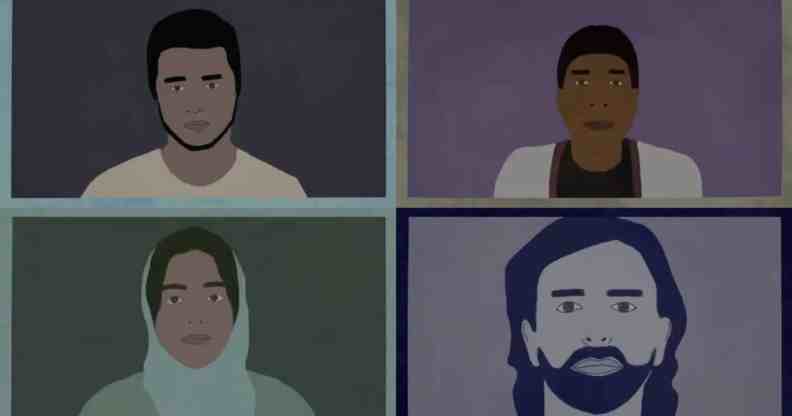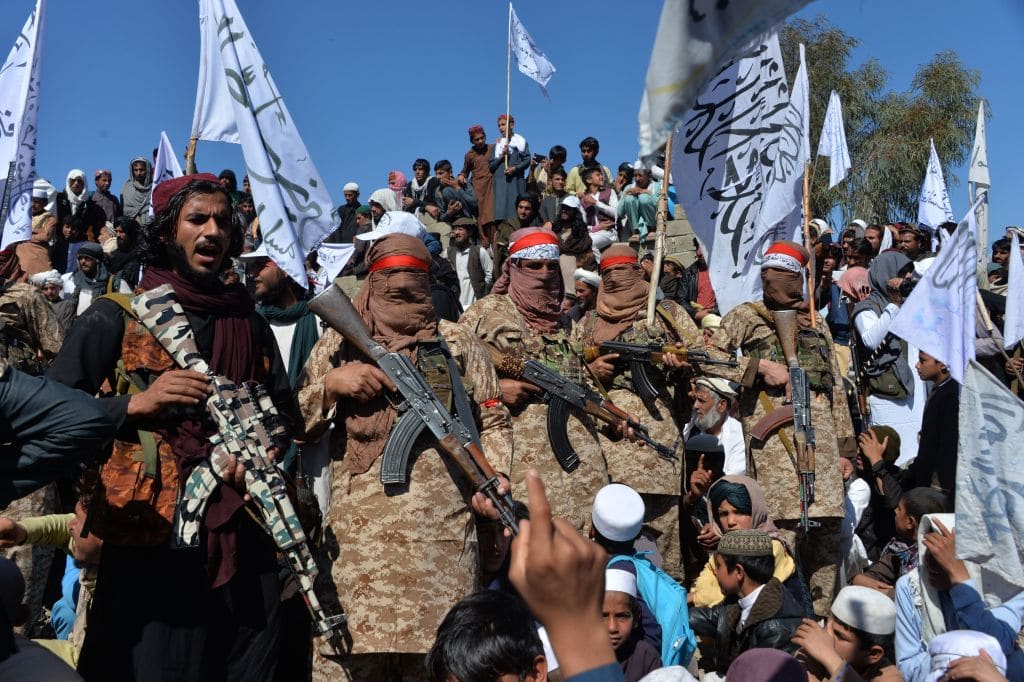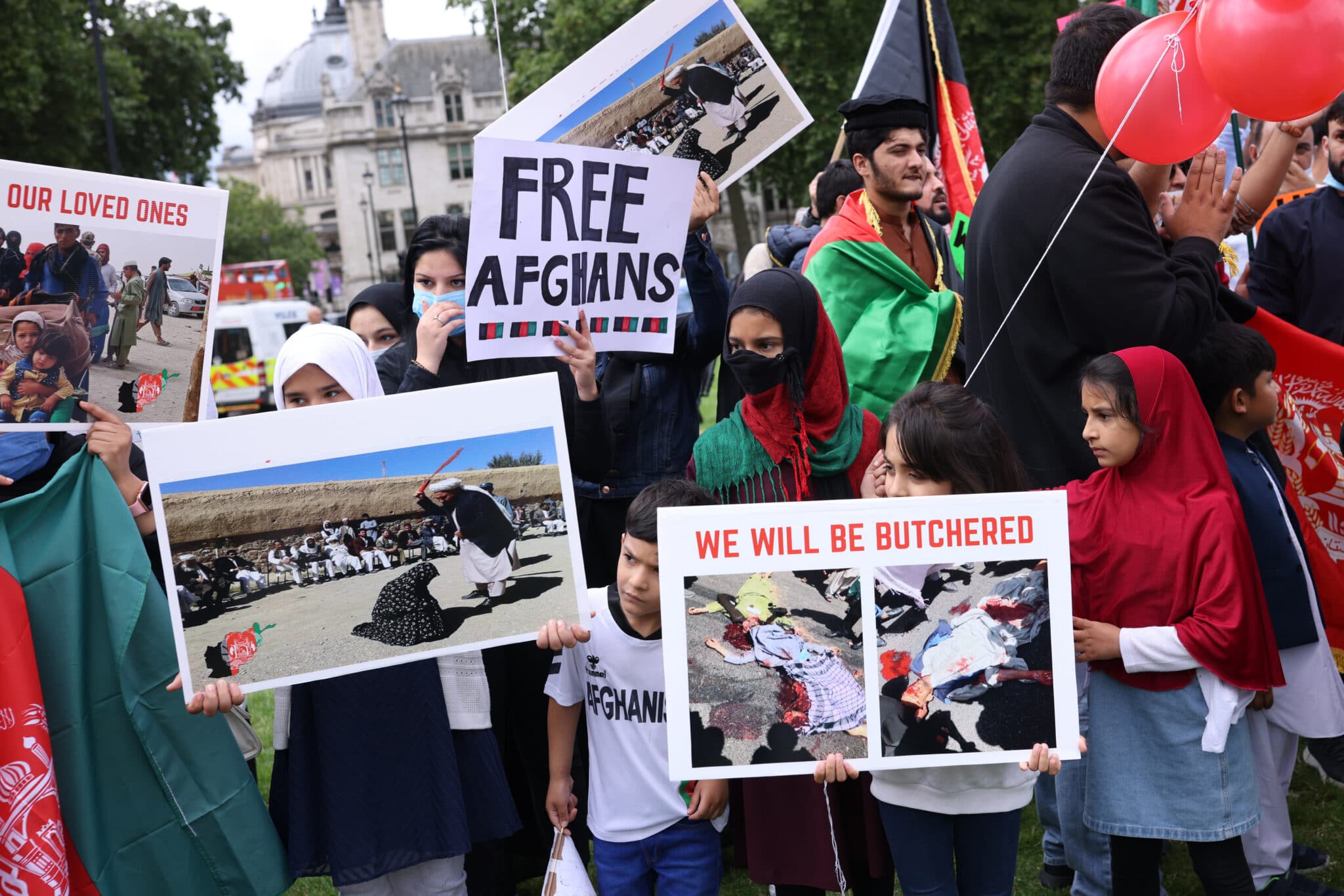I spoke to 100 LGBTQ+ Afghans fearing for their lives under the Taliban. This is what I learned

Gay Under the Taliban is now available to watch on All 4 and YouTube. (Channel 4)
Filmmaker Dan Hall accidentally found himself in contact with more than a hundred queer people in Afghanistan living under Taliban rule. He shares some of their stories in a powerful new film.
After Hall, a documentary director and producer, put out a call for contributors to help on a podcast about Afghan music, his number was somehow sent out to a list of non-English-speaking Afghans.
In the weeks that followed, his phone blew up. Each morning, Hall would wake up to messages from LGBTQ+ people pleading with him to get them out of Taliban-ruled Afghanistan.
At first, he didn’t know what to do. But soon he realised he could help by amplifying their stories. The result is Gay Under the Taliban, a Channel 4 documentary that details the months after the Taliban seized power.
The film tells the stories of four queer Afghans – Odessa, Noor, Habib and Jabar – who, through WhatsApp messages, told Hall what life was like under the Taliban for LGBTQ+ people.
Hall says their reality is summed up by an early working title for the film.
“It was just called Hunted,” he tells PinkNews.
“One of the stories that we didn’t cover in the end was a man whose own father went out with the Taliban to try to hunt him down because he was like, ‘I know my son and I know where he could be hiding, let me help you,'” Hall says.
“That’s the kind of cultural world that they’re living in. It’s unconscionable – it just became a place of fear and hunger and loneliness.
“That’s something that I think is easy to forget – imagine no one ever touching you, no one loving you, no one f**king you. It’s not on. It’s terrible and it was awful, it still is.”
He describes the filmmaking process as “incredibly personal” – he only ever spoke to the people featured in the film via WhatsApp, often having to use Google Translate.
“It wasn’t like we sat down and had official meetings, it would be me lying in bed, about to put the light out, and I’d be tapping on WhatsApp to them: ‘How are you doing? Have you managed to eat anything today? How’s your mother? How are the bruises after you were beaten up last week?'”

Afghan Taliban militants and villagers attend a gathering as they celebrate the peace deal and their victory in the Afghan conflict against the US. (AFP via Getty/NOORULLAH SHIRZADA)
Being trusted to tell their stories was “an honour”, Hall says, but was also “traumatic”.
He recalls receiving a message from a gay man in Afghanistan who was so desperate that they threatened to set themselves on fire in public if he didn’t find a way to get them to safety.
“Because of the time difference, you wake up every single day – and I still do – with messages begging for me to get them out,” he explains. “It’s difficult, but it’s harder for them than it is for me.”
There was no way Hall could tell the stories of the more than 100 people he spoke with, and he carried the weight of the decision.
“You know that the people you choose are going to be the people who are probably most likely to get help,” Hall says. “You’re sort of choosing destiny a little bit and so the only way to do that sanely is to just not pick people because you like them but because you think they have a story that’s unique to tell.”
One day, while still making the film, Hall received a message from somebody at the Foreign, Commonwealth & Development Office in the UK asking if he knew of any queer Afghans who had made it to Islamabad and wanted to get to safety.
Jabar, a young queer journalist from Afghanistan, was in the city. Within hours, he was able to tell Jabar the good news.
“I sent him a message saying, you need to pack your bags because there’s a taxi on the way to get you,” Hall recalls.
“It was just one of those things where by luck, I happened to be online when this window was closing. It was just that the right paperwork had fallen in the right place.”
He’s glad Jabar was able to get to safety, but Hall is all too aware of the suffering so many other LGBTQ+ Afghans continue to endure. Countless people are still waiting on asylum applications. Some have been murdered, others have been raped.

Citizens protest Taliban’s return to power in London. (Getty Images/Dan Kitwood)
When Hall speaks to PinkNews, he hasn’t heard from Odessa in a number of weeks. He doesn’t know if she is safe. The last time he heard from Habib, a gay dancer, he was living on the streets and begging for money.
More than a year after the Taliban took over Afghanistan, the plight of LGBTQ+ Afghans has largely been forgotten about, Hall says.
When asked what he would like people to take away from Gay Under the Taliban, Hall says: “I’d like people to stop going around saying that people are queer because of a choice.
“Do they think that people would choose to be hunted down, that they would choose to be raped? It’s just ignorant nonsense.
“I think that’s what I’d like people to take away from it.”
Gay Under the Taliban is available now on All 4 and on YouTube.

